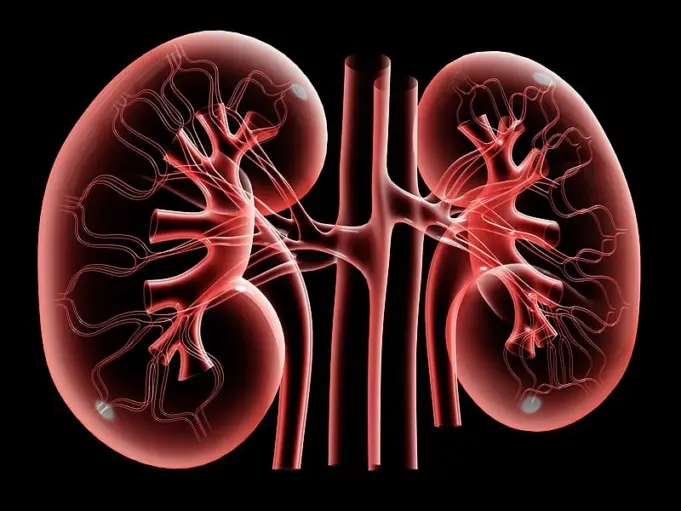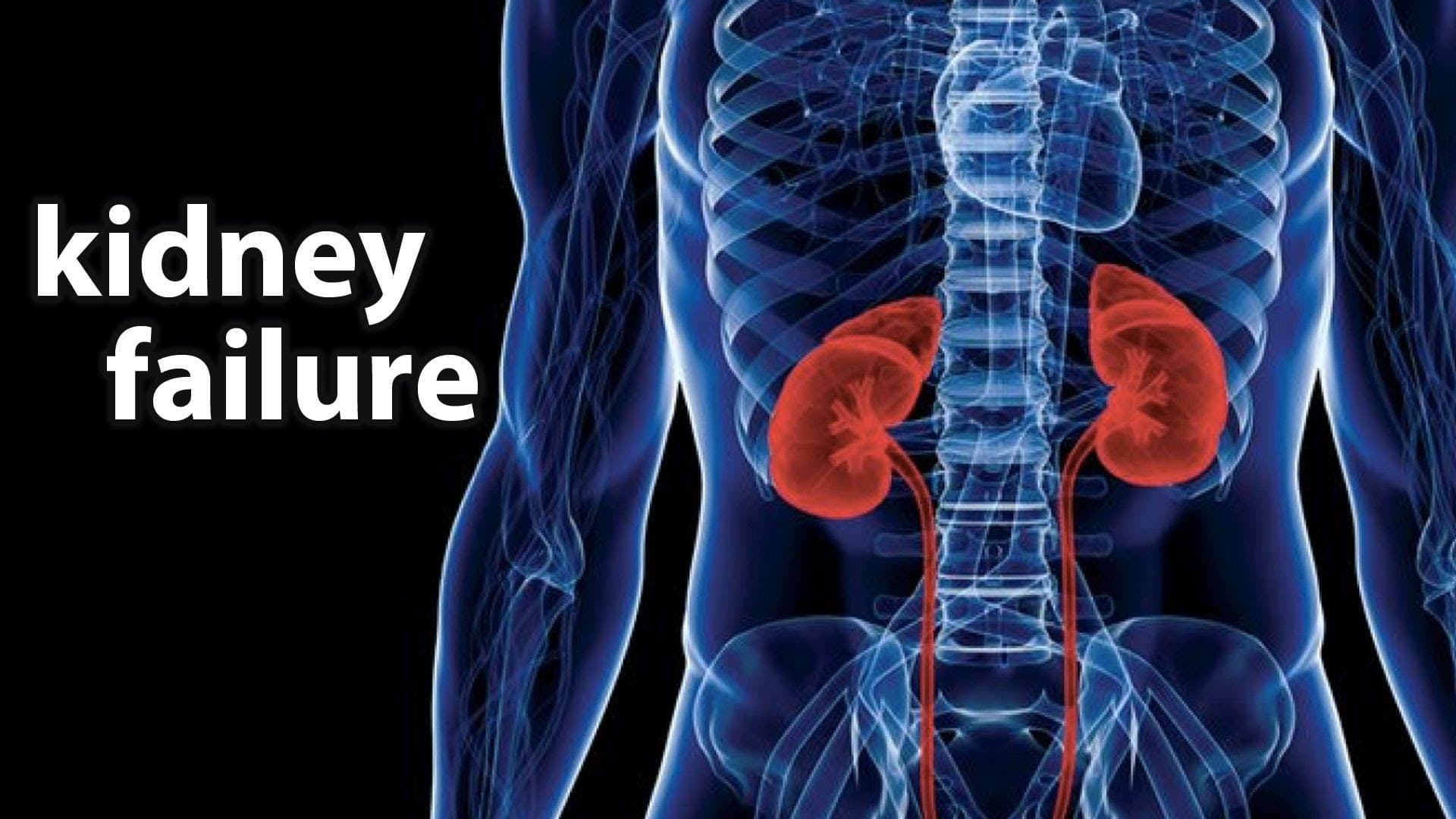Kidneys resemble shape of beans and are located in upper abdominal cavity underneath diaphragm; one on each side of spine. Primary function of kidney is to filter out waste products from the blood and form urine. Apart from these functions, kidneys are also involved in balancing body fluids, regulating blood pressure, maintaining electrolyte balance and aid in production of red blood cells in the body.
What is kidney failure?
Kidney failure occurs when their functioning comes to an abrupt halt. They lose their ability to filter out waste products which causes accumulation of toxins in blood. Since, our body has two kidneys, complete kidney failure will occur only when both the kidneys stop functioning entirely. If one of the kidney stops functioning, it can be removed or treated depending upon its severity. Our body can function well even with one kidney. Kidney failure is a serious issue and may become life-threatening if not treated as early as possible.
What are the causes of kidney failure?
Kidney failure can occur because of several reasons such as:
- Serious injury to kidneys
- Chronic diseases that slowly lead to kidney failure
- Dehydration
- Medications that cause excessive water loss
- Medications like Nonsteroidal anti-inflammatory drugs (NSAIDs) like naproxen (Aleve, Naprosyn) and ibuprofen (Advil, Motrin, and others), Antibiotics like tobramycin, aminoglycosidesgentamicin (Garamycin) etc.
- Lithium containing medications like Eskalith, Lithobid etc. interfere with kidney functioning
- Iodine-containing medications which are generally injected during radiological procedures
- Hypovolemia (low volume of blood supply to kidney)
- Obstructions in urinary tract
- Hemorrhage
- Low blood pressure
- Autoimmune kidney diseases like interstitial nephritis and acute nephritic syndrome
- Septic shock
- Renal surgeries
- Disorders like hemolytic uremic syndrome, malignant hypertension, idiopathic thrombocytopenic thrombotic purpura (ITTP), scleroderma and transfusion reaction may cause clotting within renal blood vessels
- Infections like acute pyelonephritis and septicemia may harm kidneys
- Certain pregnancy complications like placenta abruption and placenta previa can cause kidney complications
What are the symptoms of kidney failure?
Kidney failure may not reveal any signs in germinating stages. However, symptoms can be seen when kidney function decreases and toxins commence getting piled up in renal blood vessels. Some indications of kidney failure are:
- Weakness
- Lethargy
- Blood in stools
- Nausea
- Vomiting
- Sluggish and slow movements
- Fluid retention
- Fatigue
- Pain between ribs and hips
- Hand tremor
- Easy bruising
- Mood swings
- Reduced appetite
- Decreased sensation
- Prolonged bleeding
- Seizures
- High blood pressure
- Metallic taste in your mouth
- Shortness in breath
- High amount of potassium in blood
- Metabolic acidosis
If these symptoms persist for a long period of time, it is better that you consult with a doctor without any delay.
How is kidney failure diagnosed?
To diagnose kidney failure, doctor will recommend certain tests such as blood test, urine test, abdominal ultrasound, etc. Let us understand how these tests help to diagnose kidney failure.
Blood Tests:
Blood tests are conducted to check measure of toxicity in blood. Higher the amount of toxins, higher is the damage caused to kidneys. Blood tests such as creatinine, BUN (Blood Urea Nitrogen), GFR (Estimated Glomerular Filtration rate) etc. help to diagnose kidney failure.
Urine tests:
Since kidney failure causes problems of retention of protein in urine and electrolyte imbalance, urine tests can help to diagnose amount of electrolytes such as sodium and potassium in blood as well as amount of protein content. Urinalysis gives precise information of substances found in urine.
Tests such as abdominal X-ray, abdominal CT Scan, abdominal MRI, etc. can help to detect any obstruction in urinary tract
Doctor may ask you to perform combination of above test for precise diagnosis. If you are allergic to certain substances, it is better to let your doctor know about it in advance.
What treatments are available for kidney failure?
Depending upon the intensity of damage caused to kidney, doctors either recommend some anti-biotics or dialysis for treating kidney failure. Diuretics also help in eliminating fluids and waste products. To avoid increase in level of potassium, calcium and insulin treatment can be given.
Dialysis
kidneys help to eliminate waste products from the body. In case of kidney failure, waste are not eliminated and get piled up. In dialysis, a machine is fixed inside the body which carries out the function of kidney. It cleanses blood and removes toxins. Dialysis of two types- hemodialysis and peritoneal dialysis.
Hemodialysis:
Hemodialysis is one of the most common dialysis type. Hemodialyzer is a machine that works like an artificial kidney and removes waste products from blood. To gain access for blood to enter into this machine, doctor will surgically create a vascular access. This will make large amount of blood flow through the body so that at a given point of time, more blood can be purified and filtered. Time taken for hemodialysis is generally three to five hours and has to be conducted thrice a week.
Peritoneal dialysis:
In this type of dialysis, a catheter is implanted into abdomen through surgical procedure. A special fluid called dialysate flows into abdomen that draws out waste from bloodstream. It is then drained from abdomen. Peritoneal dialysis can also be performed at home once you receive appropriate training and steps on how to perform it.
What are the complications involved in kidney failure?
Kidney failure can lead to major and hazardous health complications if left untreated. Some of the major complications in kidney failure include:
- Damage to nervous system that comprise of brain, spinal cord and nerves
- Damage to heart and cardiac muscles
- Chronic kidney failure
- High blood pressure
What precautions one should follow to prevent occurrence of kidney failure?
- Diet plays indispensable role in preventing occurrence of kidney failure. Unhealthy dietary habits and lack of exercise can both lead to renal damage.
- Patients who have underwent treatment for kidney failure should be more cautious about what they put into their mouth. Foods that contain high amount of potassium and salt should be avoided as kidneys find it difficult to process these elements. Foods rich in potassium content are apricots, bananas, cantaloupe, sweet potatoes, yogurt, spinach, avocado, etc.
- Too much of phosphorus in body can also interfere with kidney function and affect calcium metabolism. Sources of phosphorus are dairy products such as milk, cheese, yogurt etc., sardines, oysters, nuts, canned ice teas, baked beans, black beans etc.
- One should increase intake of fluids by consuming good amounts of water. One can as well consume fruit juices and vegetable juices for hydration purposes. Coconut water, lemon water, herbs infused drinks (basil, mint, thyme, rosemary, parsley) etc. also prove to be excellent hydrating stuffs.
Though kidney failure is a serious complication, it can be treated. All you need is patience and unshakable will-power to fight against it. With appropriate medications and treatments, complications can be reduced significantly.
Author Bio:
 Pousali is an M.Phil in English literature & likes to explore genres related to arts and aesthetics. She truly enjoys writing on different concepts. Here she explains What is Kidney Failure? Cause, Symptoms and Treatments options.
Pousali is an M.Phil in English literature & likes to explore genres related to arts and aesthetics. She truly enjoys writing on different concepts. Here she explains What is Kidney Failure? Cause, Symptoms and Treatments options.













